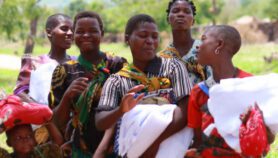By: Yidong Gong
Send to a friend
The details you provide on this page will not be used to send unsolicited email, and will not be sold to a 3rd party. See privacy policy.
[BEIJING] Chinese scientists studying the genomes of African and Chinese people have found stretches of genetic material unique to them – which have so far gone unrecorded in the ‘reference’ genome to which most scientists refer.
This could lead to personalised medicine matched to specific populations, or even individuals, in developing countries, they say.
The researchers used data from the first Asian and African genomes to be sequenced, which were published in 2008. The team compared these with the US National Center for Biotechnology Information (NCBI) reference human genome.
They found about five million bases (units of DNA) of new sequences in each of the comparisons. These bases cannot be found in the NCBI reference genome. Five million bases is 0.17 per cent of the total human genome length of three billion bases.
The researchers believe that this will contribute toward the establishment of a human pan-genome — the whole set of genes shared among all human beings. It is estimated that such a genome would contain up to 40 million bases of new sequences.
New sequences may provide clues to the differences in susceptibility to disease and in responses to drugs among human populations and individuals, Wang Jun, co-author of the study and a professor at China’s Beijing Genomics Institute, told SciDev.Net.
"The discovery of genetic variations will move the main stage of healthcare from diagnosis and cure to early prediction and prevention, which will substantially reduce the medicine burden in developing countries," Wang argued.
Such personalised medicine is far from clinical use, he said, but "the speed of technology and methodology revolution is dramatic and the cost is dropping down very quickly. We thus have full belief in personal genomics and personalised medicine that they will certainly be affordable to most people in developing countries."
Qi Ming, Director of Zhejiang University Center for Genetic & Genomic Medicine, said: "Such work is particularly important in developing countries where disease prevention [which is less expensive and more efficient] will be critical due to the lack of sufficient medical resources".
"This and other studies have shown that some genetic variants are more common in some populations than in others," said Eric D. Green, director of the US National Human Genome Research Institute.
"This is critical for making links between genome variation and human health, while also showing that links for one population may not hold for another. In order to understand the genetic basis of disease, variation must be understood in different populations, if the benefits of genomics are to be widely realised. This work is really just getting started, but I’m confident the results will be profound."
The research is published in Nature Biotechnology this month (7 November).













